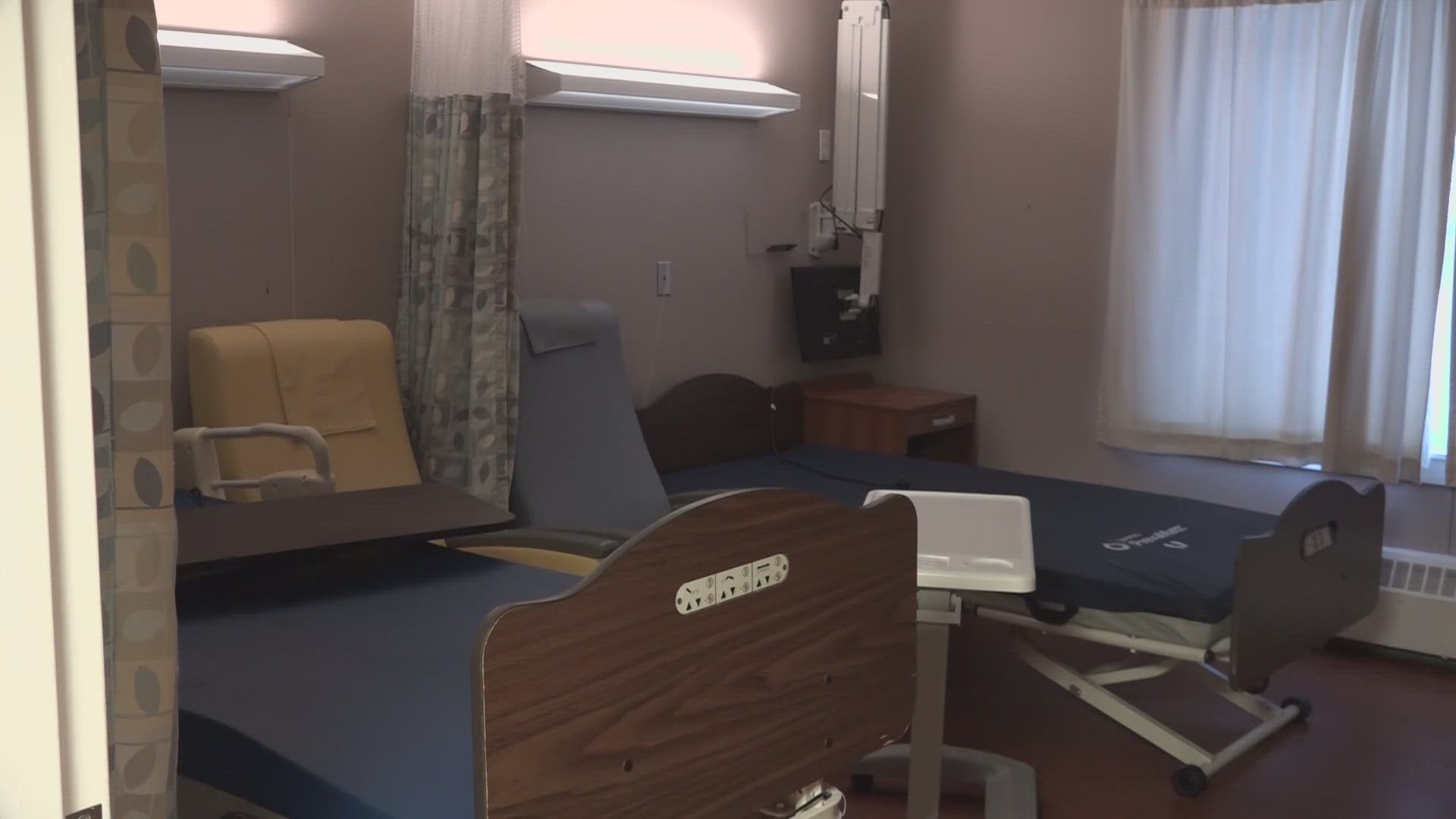AUGUSTA, Maine — A coalition of health care providers and advocacy organizations gathered at the Maine State House Monday morning to ask the Legislature to allocate $31 million to the state's struggling long-term care system.
The coalition launched a new "Who Will Care" campaign to address the struggles plaguing the system which is currently facing a $120 million reimbursement shortfall. The Maine Health Care Association, representing 200 nursing homes and assisted living facilities, is leading the coalition.
"Long-term care facilities have seen costs soar while their revenue streams have lagged behind," Sen. Rick Bennett, R-Oxford, said.
Almost 30 years ago, Maine had a total of 132 nursing homes, according to the coalition. Twenty-three closed within the past decade, and now Maine is left with just 81. Low reimbursement rates and lack of staffing have hindered long-term care facilities in Maine from serving the state's older adults.
"We have patients who have been in the hospital for over four months awaiting placements and facilities," the executive director of Affinity Care of Maine and hospice care nurse Jessica Duffy said. "Something must be done."
Backers of the campaign, including Sen. Bennett and Senate President Troy Jackson, said Gov. Mills' supplemental budget allocates only $3 million to support the long-term care system. The coalition is asking for $28 million more.
“It is clear that the past approach of one-time supplemental payments is not working," Sen. Bennett said.
Duffy said nurses and caretakers in the facilities are physically and emotionally drained. Many facilities need to rely on temporary staffing in order to provide care because they're failing to recruit and keep workers despite increasing pay.
"They've [facilities] raised wages over 30 percent in the last three years. Those facilities just raise their rates. It's a never-ending cycle," Angela Cole Westhoff, the executive director of the Maine Health Care Association, said.
The Mills Administration referred to the Department of Health and Human Services for comment. A spokesperson for the department, Lindsay Hammes, said the well-being of those who live and work in long-term care facilities is "critically important."
The department is planning to invest $50 million into nursing home reimbursements as part of rate reform for the next fiscal year. Hammes also said since 2019, the department has increased average reimbursement rates by more than 50 percent.
"The Department will continue to do everything it can to support Maine people with long-term care needs. Demand for long-term services and supports is high in Maine, which has the oldest median age in the nation. As such, Maine DHHS has prioritized efforts to strengthen the system and the workforce at its heart to improve the health of older Maine people and those with disabilities," Hammes said.

